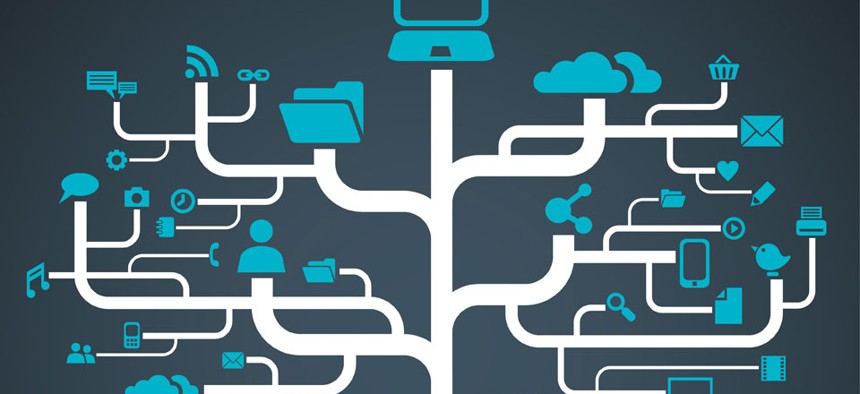Get Ready for Connected Everything

photovs/Shutterstock.com
Here comes an explosion of connected devices -- some of which may help government.
LAS VEGAS -- If the past decade was when computing went mobile with the introduction of smartphones and tablets, the next decade will see computing expand across people’s daily lives from your home and your car to your key fob and your local convenience store, presenters said on the first day of the 2014 Consumer Electronics Show in Las Vegas.
Once wearable and non-device based technology becomes widespread, people will be better able to integrate data-based decisions into their daily lives, said Shawn DuBravac, chief economist and senior research director for the Consumer Electronics Association.
A blood pressure sensor on your smart watch, for example, could sync with the calendar on your smartphone, pointing out the most stressful parts of your day and suggesting simple ways to de-stress. The smartphone in your pocket could also alert your thermostat to switch on 15 minutes before you return home, ensuring that your home doesn’t waste energy when you work late as a simple timer would.
“We’re starting to digitize all of these everyday things,” DuBravac said. “We’re starting to digitize the devices around us. We’re starting to capture in a digital way all of this information that was there anyway but wasn’t being captured. Now that it’s being captured in a digital way we can start to make decisions quicker.”
Fully autonomous cars are likely more than a decade away from broad commercial use, DuBravac said, but autonomous components are already being integrated into cars such as automatic parking tools. In the coming years, cars could include more autonomous components, such as adaptive cruise control that slows down when you approach a slower moving car or a tool that ensures you don’t drift into another lane while using cruise control, DuBravac said.
These developments, often referred to as the Internet of Things, could have major implications for businesses, he said. Convenience stores could put adaptive screens in front of their registers that change prices based on real-time data such as what items are currently overstocked and how soon a new shipment will come in. Netflix or a competitor could also alter its movie suggestions based on the time of day, the viewer’s stress level or how many people are in the room, he said.
This smart technology could have implications for government, according to a separate panel on smart homes and wearable technology. A smart home could automatically unlock the front door when local firefighters arrive, for example, and send them sensor data about where people and pets are located in the home.
(Image via photovs/Shutterstock.com)






